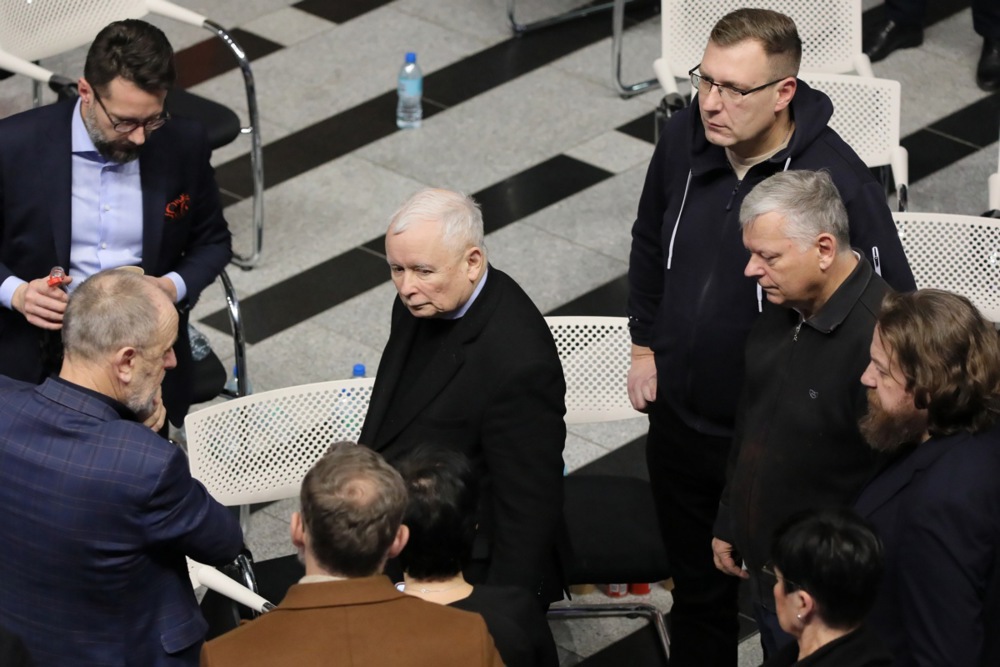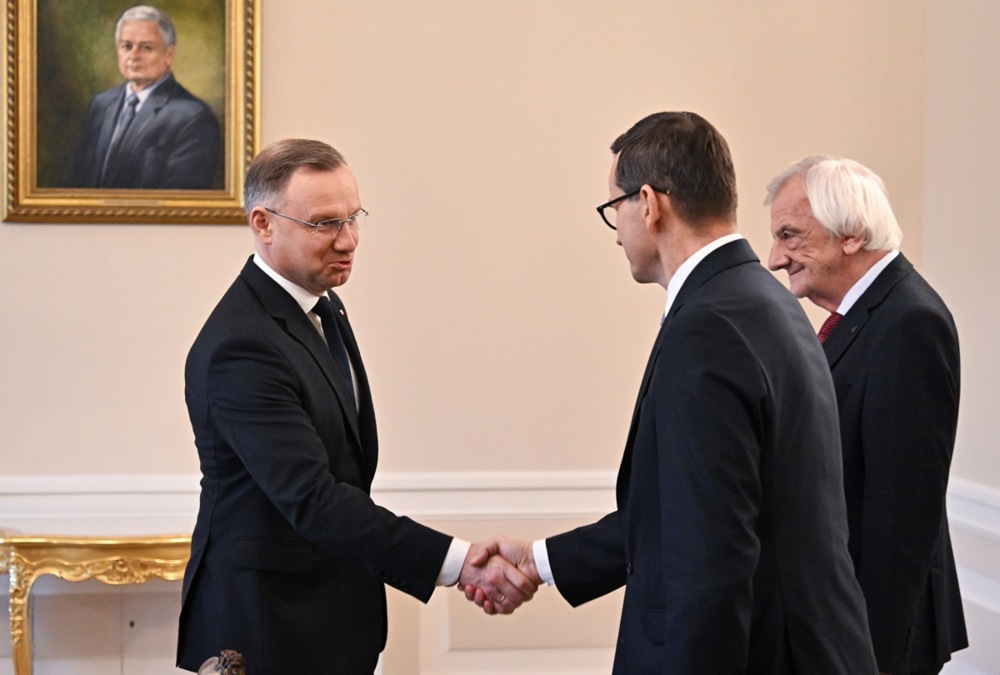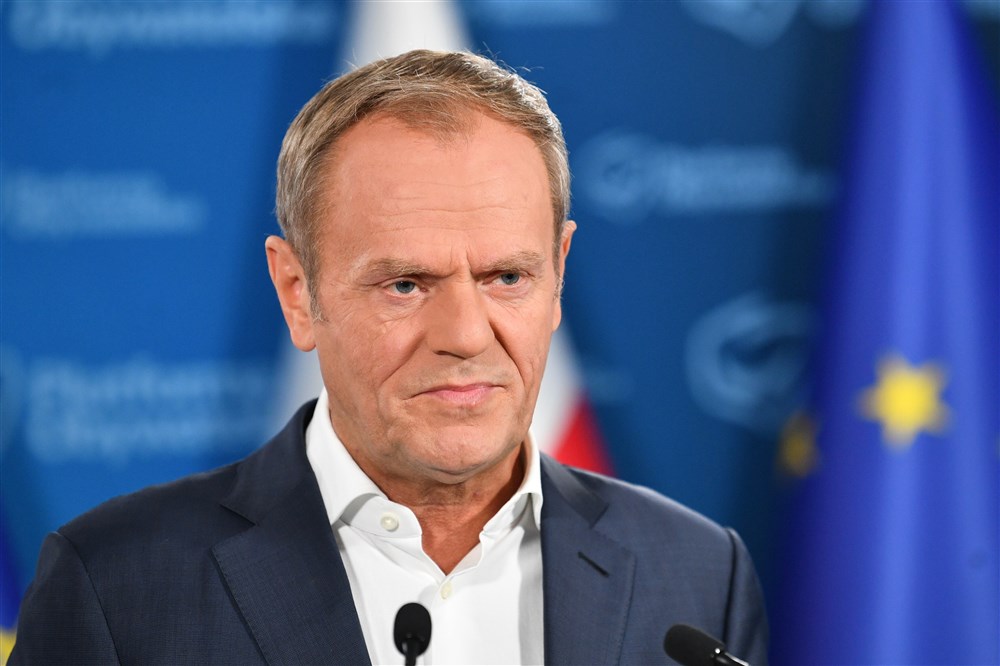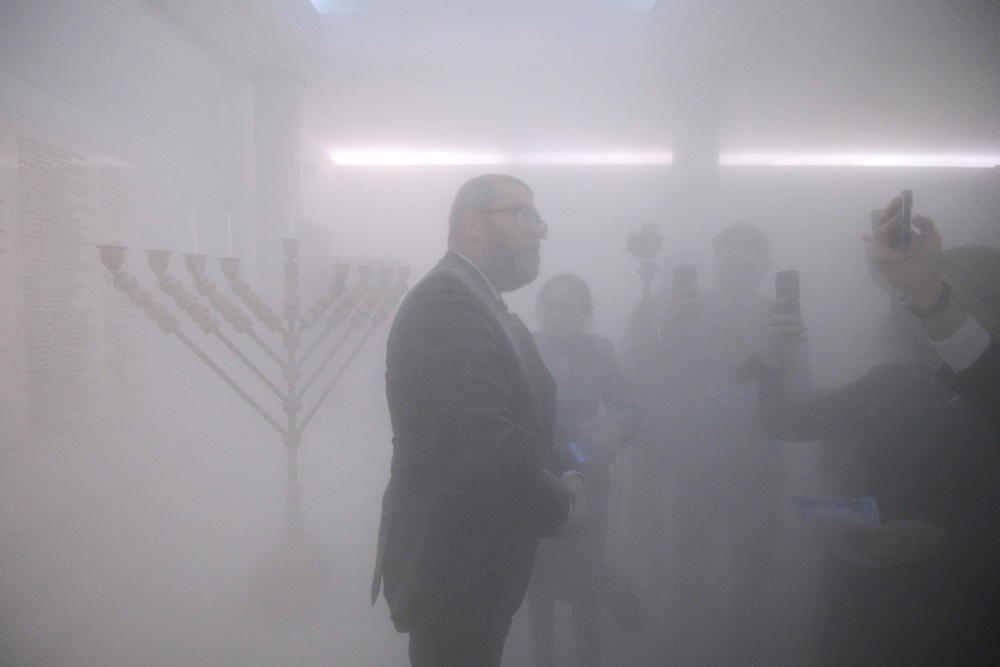The Polish president on Thursday denounced as “anarchy” state media reforms announced by Prime Minister Donald Tusk as tensions mounted between the head of state and Tusk’s new pro-European Union administration.
The swearing-in this month of a government led by Tusk, a former president of the European Council, began a cohabitation with President Andrzej Duda, an ally of the previous nationalist administration. It has seen a turbulent first few days.
On Wednesday, Tusk’s government took a public 24-hour news channel, TVP Info, off the air and dismissed executives from state media, saying the move was designed to restore impartiality.
State media, and in particular TVP Info, were accused of having become outlets for propaganda under the previous government of the nationalist Law and Justice (PiS) party.
Some PiS officials gathered at public TV headquarters in protest earlier in the week, and Reporters Without Borders (RSF) “denounced the intrusion”.
“The public media belong neither to PiS, nor to any other party,” said Pavol Szalai, head of the EU/Balkans desk for the journalism organisation. The group urged Tusk to enact legislation on “independence of the public media and on decreasing political influence in their oversight, funding and leadership appointment.”
Duda told private broadcaster Radio Zet that the government’s steps had bypassed parliamentary procedures and went against the constitution. “These are completely illegal actions,” he said. “This is anarchy.”
The National Broadcasting Council and its head, PiS-backed Maciej Swirski, said in a statement it informed the European Regulators Group for Audiovisual Media Services (ERGA) of “a material breach of media law”.
Joanna Krawczyk, deputy director at the German Marshall Fund in Warsaw, said Poland’s public media needed “deep reform” to ensure the “complete depoliticisation” of supervisory bodies such as the National Broadcasting Council.
State television TVP 1 on Thursday evening broadcast the first edition of its main 30-minute evening news programme since Tusk’s actions. The program was also broadcast on TVP Info which had otherwise discontinued its normal schedule.
The broadcast began with a report on protests against the politicisation of TVP that were held daily outside its offices for years.
In contrast to all-out attacks on Tusk and his supporters that characterised previous TVP output, the report on media changes featured Duda’s criticisms alongside a response from Culture Minister Bartlomiej Sienkiewicz.
“All voices which make accusations of irregularities… are in reality the voices of those who created this mechanism of evil,” Sienkiewicz said.
PiS lawmakers, some of whom had taken part in protests at TVP’s offices this week, walked out of a parliament session on Thursday after their motion for debate on the changes to state-run media was rejected by the majority.
PiS lawmaker Marcin Przydacz said any changes to state media should be implemented via legislation passed by both houses of parliament and signed by the president.
The new coalition has accused Duda of violating the constitution during PiS’ eight years in power.
Meanwhile, new Parliament Speaker Szymon Holownia on Thursday stripped former Interior Minister Mariusz Kaminski and his former deputy Maciej Wasik, both PiS members, of their seats in parliament following their sentencing on Wednesday to two years in prison for abuse of power in previous roles.
In 2015, weeks after PiS came to power, Duda pardoned both, and their party said the pardon made Holownia’s decision to strip them of parliamentary mandates groundless and “political.”





